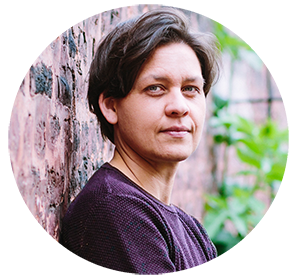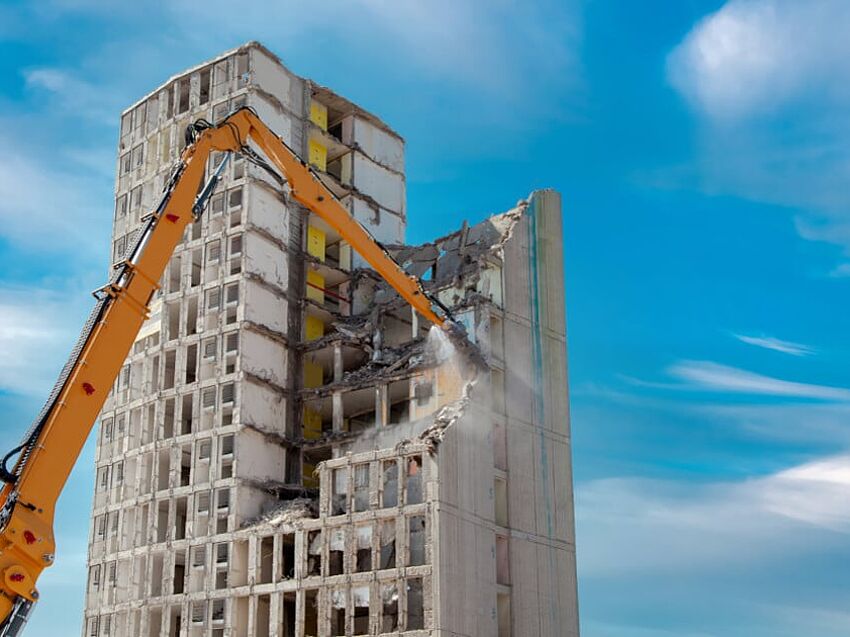Women in the construction industry? - For some, this is apparently still not normal. Four women in the industry talk about hurdles and opportunities and give advice for the next generation of women.
Women make up half of society, but are still extremely underrepresented in the male-dominated construction industry. ALLPLAN spoke to four successful women from different areas of the construction business about their views on the topic of "women in the construction industry". Their experiences are sometimes sobering, but also give reason to hope that the industry will be more equal in the future.
A rarity in management positions

Four different professions, four different perspectives, and yet they all agree that there is still a lack of women in the construction industry. "In many cases, the construction industry still has an outdated image of women," says Nicole Bode-May. The Senior Project Manager at PL Architekten in Germany has been working as an architect with a focus on healthcare buildings for 30 years. “I always had to prove myself, always had to go an extra mile, too. I also often had to actually justify my career aspirations.”

Birga Ziegler, Civil Engineer and Managing Director at ilp² Ingenieure, points out the low number of women in important decision-making positions such as professional associations and chambers: "The situation is no different at my professional association, the Bavarian Chamber of Engineers, Germany. Only six percent of the representatives' assembly, and thus all the committees and the working groups, are made up of women." The salary difference between women and men is also nearly 25 percent. Women are also a rarity in management positions. Instead, many find themselves in administration, where there are better part-time models and the pressure to perform is lower.
Lack of attention and unseen competence

There is also a lack of attention to the work of women in construction. "There is still too little talk about women architects in the construction industry at the moment," says Susanne Raulf, Managing Director of the design firm Raulf Architekten. "Hardly anyone knows five famous female architects." For this reason, she founded the Architects@work network, which aims to give students, founders or young female architects the opportunity to showcase themselves and their quality and serve as role models for others.

The fact that, unfortunately, there is still a need for such visible role models as proof of women's competence is also shown by the experience of Sylvia Carola Schuster, founder and Managing Director of the organizational consulting firm Projektitekt: “When we were studying architecture, we had a very balanced ratio of men and women. Then you come to the construction site for the first time and you are in an absolute male domain. I often experienced on the construction site that people around me were very prejudiced and assumed a naïve, inexperienced person was there to face them.”
Building is an issue for society as a whole
The one-dimensionality that still prevails is not only unfair, it also undermines the development of female potential in the structural design of our world. "Construction is generally an issue for society as a whole," emphasizes Birga Ziegler. "Women civil engineers shape and promote the lives of all people. It's very important that more women's voices are heard in crucial places." Nicole Bode-May also emphasizes the enormous importance of diversity: “The more diverse a team is, the more different mindsets come together, the more multidimensional thinking I get and the more creative input. And I gain by engaging in a debate, because if everyone ticks the same way, then everyone looks in the same direction and doesn't see what's on the right and left. And so I don't get the best solutions.”
Courage, self-confidence and looking at your own strengths
For young women aspiring to a career in the construction industry, the four experienced professionals have some good advice. Susanne Raulf: "I advise young female architects to look for role models and mentors, to think outside the box, and to be courageous and self-confident." Sylvia Carola Schuster advises "not to listen so much to what is generally accepted as a career, but to find out for yourself what you do best, where your own strengths lie - and then implement exactly that." Birga Ziegler sees communication as a key: "Be open, talk to each other, clearly formulate your career aspirations and your goals with your superiors, don't sell yourself short and stay calm."
"Women who want to enter the construction industry should definitely not have any self-doubt," says Nicole Bode-May. "On the contrary, they should have self-confidence, but also patience and stamina. Because a woman in the construction industry is usually offered nothing. That means taking the first step, that's the most important thing, getting into it, having courage, going ahead." The architect is confident about the future:
"If I may take a look into the crystal ball of what the architect will look like in 2050, I'm sure we won't be discussing men or women at all, or having an issue about whether women should be in the construction industry or in what form. It will be a given. Diverse working models/working hours will also become a matter of course. The future will be diverse - in every form."




